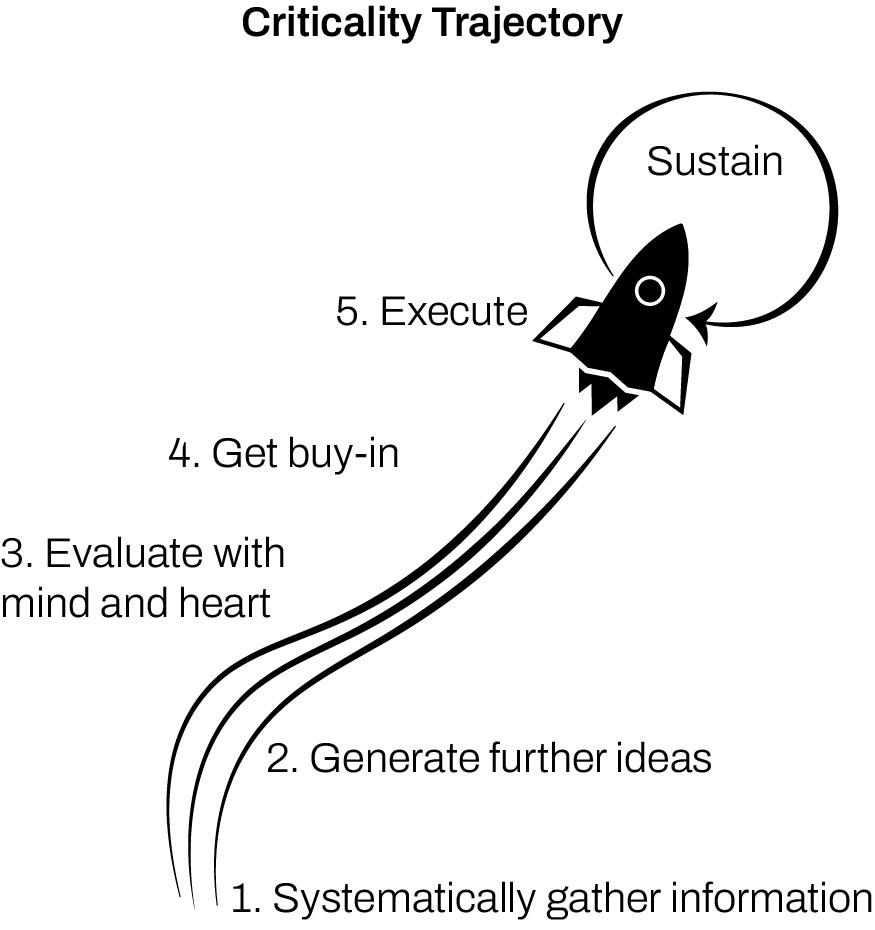This course adopts the following intensive structure to make the most of your valuable time.
Case Studies: Critical Thinking in Business
We present a number of real-life case studies in which critical thinking has led to effective business outcomes.
- Intellectual Property
- Music Royalties
- Market Acquisition
The Criticality Trajectory
We explore best practice in critical thinking via an exploration of our Criticality Trajectory (depicted below).

You will first be taken through three research-backed models of assessing critical thinking:
- The RED (Recognise assumptions, Evaluate arguments, Draw conclusions) model from Pearson's Watson-Glaser II Critical Thinking Appraisal
- Halpern’s Critical Thinking Assessment, and
- Bloom’s Taxonomy.
These will serve as background knowledge during a practical activity in which you will learn how to undertake a critical thinking audit, and appraise some common indicators of a deficit in critical thinking:
- An absence of business strategy
- Rapid changes in business strategy
- Intra-team conflicts
These indicators will be considered alongside signs of a sufficiency of critical thinking, such as work being completed on time and to an appropriate standard.
You will then be guided through the five key steps involved in an organisation audit of critical thiking.
- Assess a Business Product
This can be virtually anything concrete such as a physical product, a report, or a debrief on an individual or team task.
- Ask all stakeholders and participants to describe the requirement to the auditor. This should ideally be done on both an individual and group basis.
- Invite honest judgements on the effectiveness of the product
- Invite honest assessments of the implications of the work
- Competencies to Assess
- Observation
- Problem solving
- Team cohesion
- Communication
- Open mindedness
- Tolerance for ambiguity
- Time efficiency
- Deduction
- Inference
- Retroduction/ abductive reasoning
Accessing your course
Further details will be emailed to you two weeks ahead of your course, this will include registration information and an overview of the course timetable.
Please get in touch if you have not received this information within five working days of the course start date.
In the meantime, you may wish to plan your travel: Travel information


